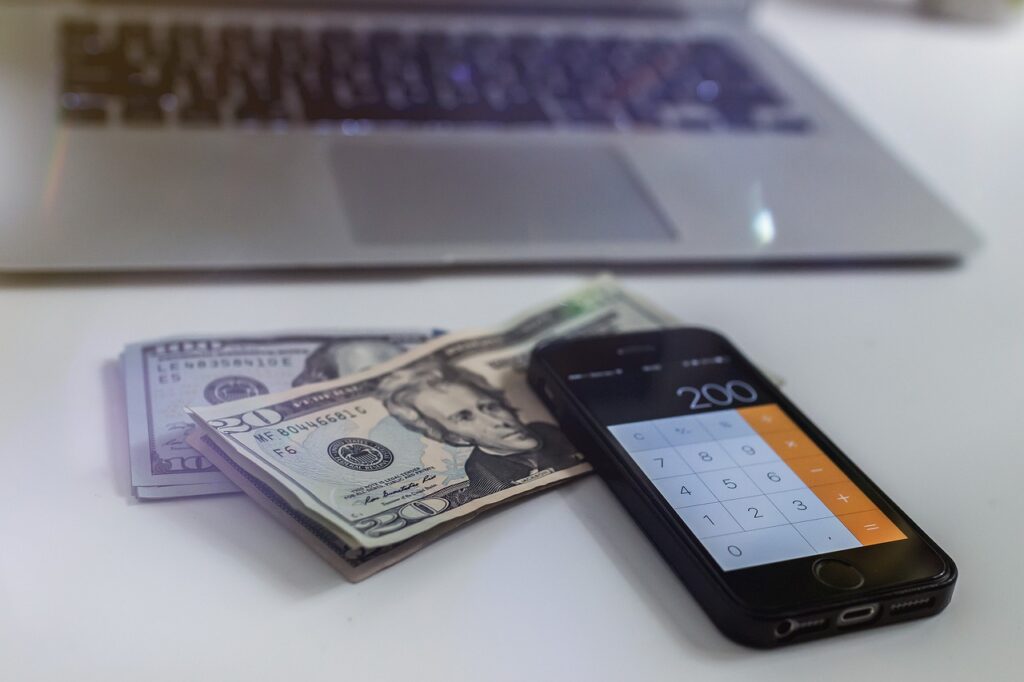What is Forex?
Forex, short for foreign exchange, refers to the buying and selling of currencies with the goal of making a profit. Forex is the world’s largest financial market, with trades amounting to trillions of dollars each day. Traders buy and sell currencies in pairs, with the exchange rate of one currency in relation to the other determining the profit or loss made on a trade.
What is currency in pairs?
In forex trading, currencies are traded in pairs. This means that a trader buys one currency while simultaneously selling another. The value of one currency is determined by its exchange rate with the other currency in the pair. For example, in the currency pair EUR/USD, the euro is the base currency and the US dollar is the quote currency. If the exchange rate of EUR/USD is 1.20, it means that 1 euro can be exchanged for 1.20 US dollars. The currency pair and exchange rate determine the trader’s potential profit or loss on a trade.
How can I trade currency in pairs?
To trade currency in pairs, you can follow these steps:
- Choose a broker: There are many online brokers that offer forex trading services. Research and compare a few to find one that meets your needs and requirements.
- Open a trading account: Once you’ve chosen a broker, you’ll need to open a trading account. You’ll need to provide some personal and financial information, and pass any necessary identity checks.
- Fund your account: To start trading, you’ll need to deposit funds into your trading account. Most brokers accept various payment methods, such as credit cards, bank transfers, and e-wallets.
- Learn the basics: Before you start trading, it’s important to educate yourself on the basics of forex trading and understand how exchange rates work. There are many online resources and educational materials available to help you learn.
- Place a trade: Once you’re ready, you can place a trade by selecting a currency pair and choosing whether to buy or sell. You’ll then enter the size of the trade and set any necessary stop-loss or take-profit orders to manage your risk.
Remember that forex trading involves significant risk, and it’s important to thoroughly research and understand the market before making any trades. Consider seeking advice from a financial advisor or professional trader.
Is it difficult to do profits trading forex?

Trading forex can be profitable, but it can also be challenging. Profits in forex trading depend on a variety of factors, including market conditions, your trading strategy, and your ability to manage risk. Some traders are able to consistently make profits, while others may struggle to generate returns.
Forex trading involves significant risk, and the market can be volatile. It’s important to understand the market and the factors that influence exchange rates, and to have a solid trading strategy in place. Effective risk management is also critical to success in forex trading. This includes setting stop-loss orders to limit potential losses and regularly reviewing and adjusting your trading strategy as market conditions change.
In summary, while it’s possible to make profits in forex trading, it’s not easy and requires discipline, patience, and a solid understanding of the market. It’s important to be realistic about the potential rewards and risks of forex trading and to only trade with money that you can afford to lose.
Real life examples of Forex
Here are a few real-life examples of forex:
- International trade: Companies that import and export goods between countries need to convert their local currency into the currency of their trading partners. Forex markets allow them to buy or sell the necessary foreign currency to facilitate these transactions.
- Tourism: When people travel to foreign countries, they often need to exchange their local currency for the currency of the country they are visiting. Forex markets provide the exchange rate for these transactions.
- Investment: Investors can use forex markets to invest in foreign currencies, either directly by buying and selling currency pairs, or indirectly through currency-focused exchange-traded funds (ETFs) or mutual funds.
- Central bank intervention: Central banks sometimes intervene in the forex market to influence the exchange rate of their currency. For example, a central bank may sell its currency to lower its value and make exports cheaper, or buy its currency to raise its value and curb inflation.
- Speculation: Some individuals and institutions engage in speculative trading, where they buy and sell currencies with the aim of profiting from short-term fluctuations in exchange rates.
These are just a few examples of how forex markets impact individuals and organizations in their daily lives. Forex markets are dynamic and constantly changing, and these examples are not exhaustive. Here at MacroFXTrader.com we of course focus on no. 3 and 5.
The difference between speculation and investment in Forex
Speculation and investment in forex markets refer to two different approaches to trading currencies.
Speculation involves taking a high-risk, short-term approach to forex trading, where the goal is to profit from short-term fluctuations in exchange rates. Speculators aim to make quick profits by buying a currency when its exchange rate is low and selling it when the exchange rate has increased. This approach involves a significant amount of risk, as exchange rates can be highly volatile and unpredictable.
Investment, on the other hand, refers to a more long-term approach to forex trading, where the goal is to generate returns over a longer period of time. Investors aim to profit from longer-term trends in exchange rates by holding a currency for a longer period and taking a more patient approach to trading. This approach generally involves less risk, as exchange rates tend to be less volatile over a longer time horizon.
In summary, the difference between speculation and investment in forex markets is primarily a matter of time horizon and risk tolerance. Speculation is a high-risk, short-term approach, while investment is a lower-risk, long-term approach. Both approaches can be profitable, but it’s important to understand the potential rewards and risks involved before entering the forex market.
How much money do I need to invest in Forex?

The amount of money you need to start investing in forex depends on several factors, including your investment goals, risk tolerance, and the trading platform you use.
Most forex brokers require a minimum deposit to open a trading account, and the amount can vary from a few hundred dollars to several thousand dollars. However, it’s important to remember that trading forex is risky, and you should only invest money that you can afford to lose.
It’s also important to consider the leverage offered by your broker. Leverage allows you to trade larger amounts of money than you have in your account, but it also amplifies both your potential profits and losses. Before using leverage, it’s important to understand the risks and make sure that you have a solid trading plan in place.
In conclusion, there’s no set amount of money that’s required to start investing in forex, as the amount you need will depend on your investment goals, risk tolerance, and trading platform. It’s important to carefully consider these factors and only invest money that you can afford to lose.
What are the safest way to invest or speculate in Forex?
There is no such thing as a completely safe way to invest or speculate in forex, as all forms of currency trading come with inherent risk. However, there are steps you can take to minimize your risk and increase your chances of success. Here are a few tips:
- Educate yourself: Before investing or speculating in forex, it’s important to educate yourself about the market and the factors that influence exchange rates. This will help you make informed trading decisions and reduce your risk.
- Use a reputable broker: Choose a broker that is regulated by a reputable financial authority, such as the Financial Conduct Authority (FCA) in the UK or the Commodity Futures Trading Commission (CFTC) in the US. These regulators help ensure that brokers adhere to certain standards and protect the interests of their clients.
- Develop a solid trading plan: Having a well-defined trading plan can help you stay disciplined and make informed trading decisions. This should include a clear strategy for managing risk, as well as specific rules for entering and exiting trades.
- Use stop-loss orders: Stop-loss orders can help limit your potential losses by automatically closing a trade when the exchange rate reaches a certain level. This helps ensure that you don’t lose more money than you can afford.
- Manage your risk: Effective risk management is critical to success in forex trading. This includes diversifying your portfolio, setting realistic expectations, and only trading with money that you can afford to lose.
By following these tips, you can minimize your risk and increase your chances of success in forex trading. However, it’s important to remember that no form of currency trading is completely safe, and it’s always possible to lose money.
So, in short, Forex is
The market for buying, selling and exchanging currencies.



